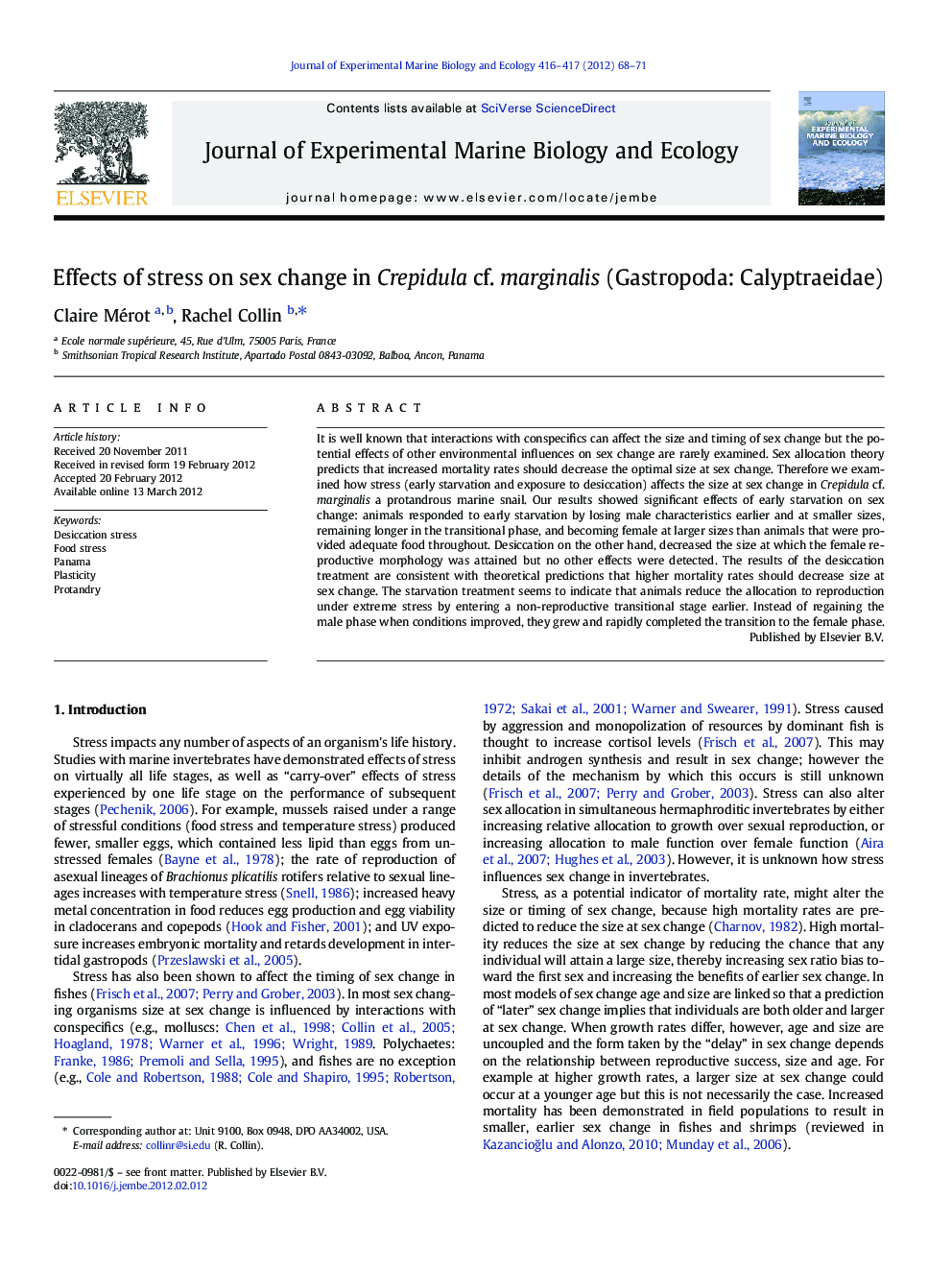| Article ID | Journal | Published Year | Pages | File Type |
|---|---|---|---|---|
| 4396093 | Journal of Experimental Marine Biology and Ecology | 2012 | 4 Pages |
It is well known that interactions with conspecifics can affect the size and timing of sex change but the potential effects of other environmental influences on sex change are rarely examined. Sex allocation theory predicts that increased mortality rates should decrease the optimal size at sex change. Therefore we examined how stress (early starvation and exposure to desiccation) affects the size at sex change in Crepidula cf. marginalis a protandrous marine snail. Our results showed significant effects of early starvation on sex change: animals responded to early starvation by losing male characteristics earlier and at smaller sizes, remaining longer in the transitional phase, and becoming female at larger sizes than animals that were provided adequate food throughout. Desiccation on the other hand, decreased the size at which the female reproductive morphology was attained but no other effects were detected. The results of the desiccation treatment are consistent with theoretical predictions that higher mortality rates should decrease size at sex change. The starvation treatment seems to indicate that animals reduce the allocation to reproduction under extreme stress by entering a non-reproductive transitional stage earlier. Instead of regaining the male phase when conditions improved, they grew and rapidly completed the transition to the female phase.
► We examined effects of desiccation and food stress on sex change. ► Early starvation of C. cf. marginalis causes early smaller loss of male stage. ► Early starvation of C. cf. marginalis causes later larger gain of female stage. ► Desiccation treatment results in decreased size at sex change. ► Starved animals lose sex altogether but regain it rapidly when conditions improve.
